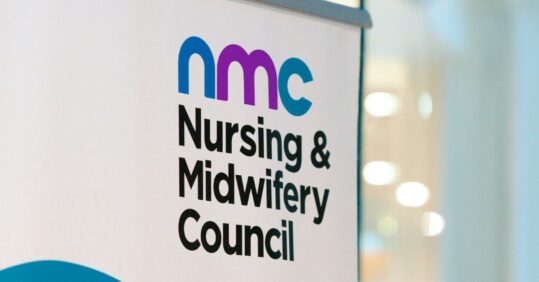NMC proposes ‘combination of approaches’ to advanced practice regulation

The Nursing and Midwifery Council (NMC) has proposed ‘a combination of approaches’ for the additional regulation of advanced practice nursing.
In a statement on Wednesday, the nursing regulator gave an update on its major review into the regulation of advanced practice and set out recommendations for its governing council to consider.
Advanced practice nursing is not currently specifically regulated by the NMC, but as part of its update this week the regulator said: ‘We’re recommending to our council that we proceed to develop an approach to the additional regulation of advanced practice – the complex, autonomous and expert roles that many experienced nurses and midwives carry out.’
The NMC has set out what it has described as a ‘combination of approaches’, including:
Related Article: QICN bids farewell to Dr Crystal Oldman as she retires from CEO role
- developing standards of proficiency for advanced level practice (and associated programme standards)
- adopting a collaborative approach to develop a UK-wide advanced practice principles framework incorporating a shared position or definition of advanced level practice
- ensuring that advanced level practice requirements are included in the wider reviews of revalidation and the Code scheduled for 2025/26
The options are understood to not be mutually exclusive and could be developed simultaneously or introduced in a phased manner.
They will be presented to the council at its next meeting on 27 March. Subject to council approval, further stakeholder engagement is anticipated, followed by a public consultation on final proposals.
The nursing regulator also confirmed that a ‘proportionate approach to recognising professionals with existing advanced practice qualifications’ would be planned for.
The NMC has been reviewing the situation over recent months, with the support of an independent steering group led by former executive chief nurse Kay Fawcett.
And its proposals are based on independent research by the Nuffield Trust, followed by NMC-led key lines of enquiry involving engagement with professionals and the public, which both found great variation in how professionals across the UK undertake advanced practice roles.
Sam Foster, NMC executive nurse director of professional practice, said: ‘Advanced practitioners bring significant knowledge, skills, and experience to provide person-centred care.
Related Article: RCN to offer ‘safe space’ to discuss Supreme Court ‘sex’ ruling
‘Regulation is about enabling the public to have consistently high expectations and experiences of working with professionals across settings and locations.’
She added: ‘If council gives us the green light to proceed with the additional regulation of advanced practice, we’ll continue to collaborate with the public, professionals and stakeholders to refine proposals that will support advanced nursing and midwifery practitioners to give the best possible care.’
In a joint statement, the chief nursing and midwifery officers for the four countries of the UK said: ‘It’s welcome news that the NMC is looking to develop approaches to the regulation of advanced practitioners.
‘These professionals make a significant and positive impact on people’s lives every day, and it’s vital that everyone receiving care from them has confidence in their knowledge, skills and experience.’
They added: ‘It’s been encouraging to see the NMC engaging extensively with members of the public, professionals and stakeholders from across the UK.
Related Article: ‘Concerning acceleration’ in drug-resistant gonorrhoea ahead of vaccine programme
‘If the recommendations to the NMC’s governing council are approved, we look forward to further collaboration on this important matter and would encourage others to get involved where possible.
‘Gathering views from across all four nations of the UK will be key to ensuring any proposed changes are in the best interests of the public and everyone receiving care.’

See how our symptom tool can help you make better sense of patient presentations
Click here to search a symptom




